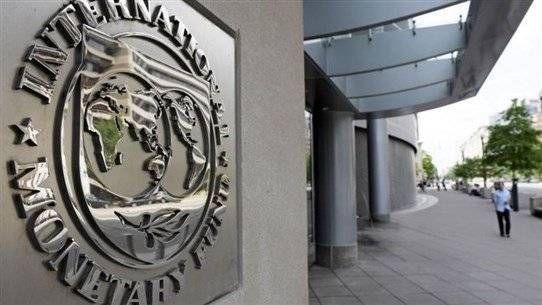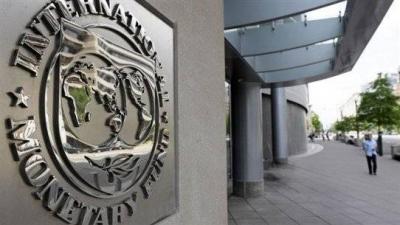Expectations for relief from the financial, living, and economic crises in Lebanon have diminished, given the official inability to implement the International Monetary Fund's (IMF) reform demands. This is due to the current deadlock and significant differences in political approaches regarding the formation of a new government and the election of a new president, coinciding with a phase of almost complete paralysis in essential government services. This situation comes just before urgent living necessities begin, starting with the upcoming new school year and extending to the high spending requirements for the autumn and winter seasons.
On Thursday, the IMF revealed that its banking secrecy law still has “major shortcomings” and urged officials to undertake another round of changes as initial steps toward reforming the financial sector. Banking sources told "Asharq Al-Awsat" that this law is “one of five major conditions demanded by the IMF and international bodies to reform the economic and financial situation in Lebanon.” These conditions include the approval of the 2022 public budget, restructuring the banking sector, passing a law regulating withdrawals and money transfers (capital control), and auditing the accounts of the Central Bank of Lebanon and official administrations.
The sources stated: “As long as there is no expected timeframe for approving these required laws as prerequisites for starting recovery, the situation is heading towards worse outcomes.” They pointed out that Lebanon is “entering a presidential election period, and the caretaker government is unable to convene to refer a bill,” leading to the conclusion that “all financial obligations seem suspended, with their fate uncertain.”
There is fear of “Lebanon quickly positioning itself on the line of the worst-case scenario warned by the Institute of International Finance recently,” based on assumptions centered around the government’s failure to implement the necessary reforms, which would annul the agreement with the IMF, deplete the Central Bank's reserves, and push the public debt ratio to over 200% of GDP in the absence of any debt restructuring or write-offs on Eurobonds.
Political crises in Lebanon are worsening, particularly concerning the dwindling time available to pass urgent legislation before the parliament begins to engage in the presidential election process starting September 1. Furthermore, the delay in finalizing the draft, as promised by Prime Minister Najib Mikati to the parliamentary Finance and Budget Committee, regarding the recovery plan and redistributing the burden of a financial gap estimated to exceed $75 billion adds to the gloom.
Indeed, the hopes of achieving promised progress in negotiations between Lebanon and the IMF before the end of the current year have been completely dashed, due to the government’s failure to expedite the approval of the package of conditions outlined in the preliminary agreement at the expert level, which was signed in early April. Notably, this package includes the approval of the current year's public budget and imposing exceptional controls on capital and transfers (capital control), in addition to parliament approving emergency legislation appropriate for settling banking conditions necessary for implementing the banks' restructuring strategy and starting to restore the health of the financial sector.
The monetary situation appears even more complicated, as fears within commercial circles have grown about the increasing dominance of informal markets over the currency exchange market due to a reduction in available commercial quotas to obtain “partially subsidized” dollars, along with the quota system for individuals capped at $500 monthly. This situation is likely to exacerbate volatility reflected in currency exchanges in the free (black) market, with dollar prices fluctuating according to the interests of speculators, against a backdrop of reduced capabilities for the monetary authority to control liquidity and manage inflation rates in the lira, especially given the necessity to double the allocations for public sector employees, military personnel, transportation allowances, and bonuses in public administrations.
The concern over increasing import (customs) dollar rates remains predominant in traders' dealings and decisions, despite the “cooling” imposed by transferring the reference to decide this issue to parliament. In fact, Finance Minister Youssef Khalil acknowledged, “It is a responsibility that everyone must be aware of its importance to curb the collapse, and to avoid burdening low-income and lower-income classes with the consequences of this collapse, as well as to restore state apparatuses to regain their role in serving citizens.” Meanwhile, an economic official asserts that consumer markets practically depend on the prevailing dollar rate, and similarly, a commitment is made to pay the expected difference on goods contracted for import by individuals or companies, mainly including new cars that are not available in showrooms.
Furthermore, pessimism has escalated on the living front, as a financial official noted that residents are left to fend for themselves in securing basic living essentials amid successive waves of high inflation, which has seen monthly averages rise sharply due to local stimulants primarily linked to the depreciation of the lira's exchange rate, and external factors stemming from rising prices of oil, raw materials, essentials, transport, and more. This is alongside ongoing increases in public service fees and anticipated price hikes as per government directions to raise the exchange rate for treasury resources and raise the costs of public services, starting with the telecommunications sector.
The prevailing realities coincide with predictions of Lebanon entering a failed state scenario in the coming period, as warned by the Institute of International Finance in its latest reports regarding the implications of such behavior. The assumptions revolve around the government's failure to implement the necessary reforms, which would temporarily annul the agreement with the IMF and delay securing a financing program of $3 billion. This scenario is expected to lead to a near-total depletion of the Central Bank's reserves, while the public debt ratio is projected to exceed 200% of GDP amid the absence of any systematic plan for restructuring public debt, along with further deterioration of the lira's exchange rate against the US dollar.




